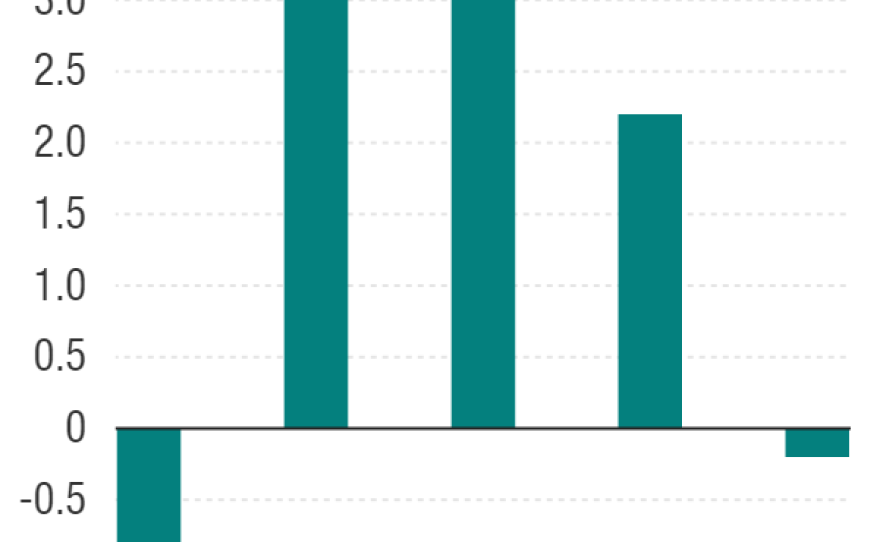
As 2015 began, the U.S. economy posted its weakest performance in a year, growing at a 0.2 percent annual pace. That's a sharp slowdown from the fourth quarter and well below the 1 percent rate economists had projected.
The deceleration — from 2.2 percent growth in the fourth quarter — comes as the Federal Reserve is debating how soon it will begin to boost historically low interest rates. Policymakers at the central bank are due to announce the results of their latest two-day meeting in Washington at 2 p.m. ET.
Reuters reported that the "weak growth, though probably temporary, reduces the chances of a June interest rate hike from the Federal Reserve."
Chris Williamson, chief economist at Markit in London, told Reuters: "A stalling of U.S. economic growth at the start of the year rules out any imminent hiking of interest rates by the Fed."
Employment growth has also slowed, with the economy adding just 126,000 jobs in March, though the jobless rate held steady at 5.5 percent.
The Commerce Department said in its "advance" estimate of gross domestic product Wednesday that the slowdown reflected a deceleration in consumer spending, exports and investments by companies.
And The Wall Street Journal said the first-quarter slowdown seemed to repeat a recent winter pattern:
"Last year, economists pinned much of the blame for a bad first quarter — GDP shrank 2.1% — on unusually harsh weather. This year, multiple factors appear to be at work, including another bout of blizzards, disruptions at West Coast ports, the stronger dollar's effect on exports and the impact of cheaper oil."
Given the consistent pattern of weak first-quarter growth, some economists suspect there's a problem with how the Commerce Department's Bureau of Economic Analysis does the seasonal adjustments for the first-quarter GDP report. The New York Times reported last week in its Upshot blog:
"It isn't a surprise that the economy has seasonal ups and downs. After all, summer vacations slow some industries, while others are chilled by winter snow, and the annual parade of holidays shifts spending throughout the year. But the government's economic statistics are meant to adjust for these predictable seasonal swings, through a process known as seasonal adjustment. But it appears that these adjustments have failed to do the job."
Personal spending grew at a 1.9 percent pace in the first quarter, less than half the 4.4 percent pace of the fourth quarter, the Commerce Department reported Wednesday.
Jason Furman, chairman of the White House Council of Economic Advisers, said in a blog post that consumers generally haven't been using the savings from lower gasoline prices to spend on other things. But, he said, that leaves room for a spending rebound later this year.
"Rising saving suggests continued improvement in households' financial situation," Furman wrote. "This will help foster conditions for stronger consumer spending growth over the course of the next year, especially in light of the fact that consumer confidence measures are nearly the highest they have been since before the financial crisis."
The first-quarter GDP numbers are subject to two more revisions, with the next one due May 29.
Copyright 2015 NPR. To see more, visit http://www.npr.org/.






